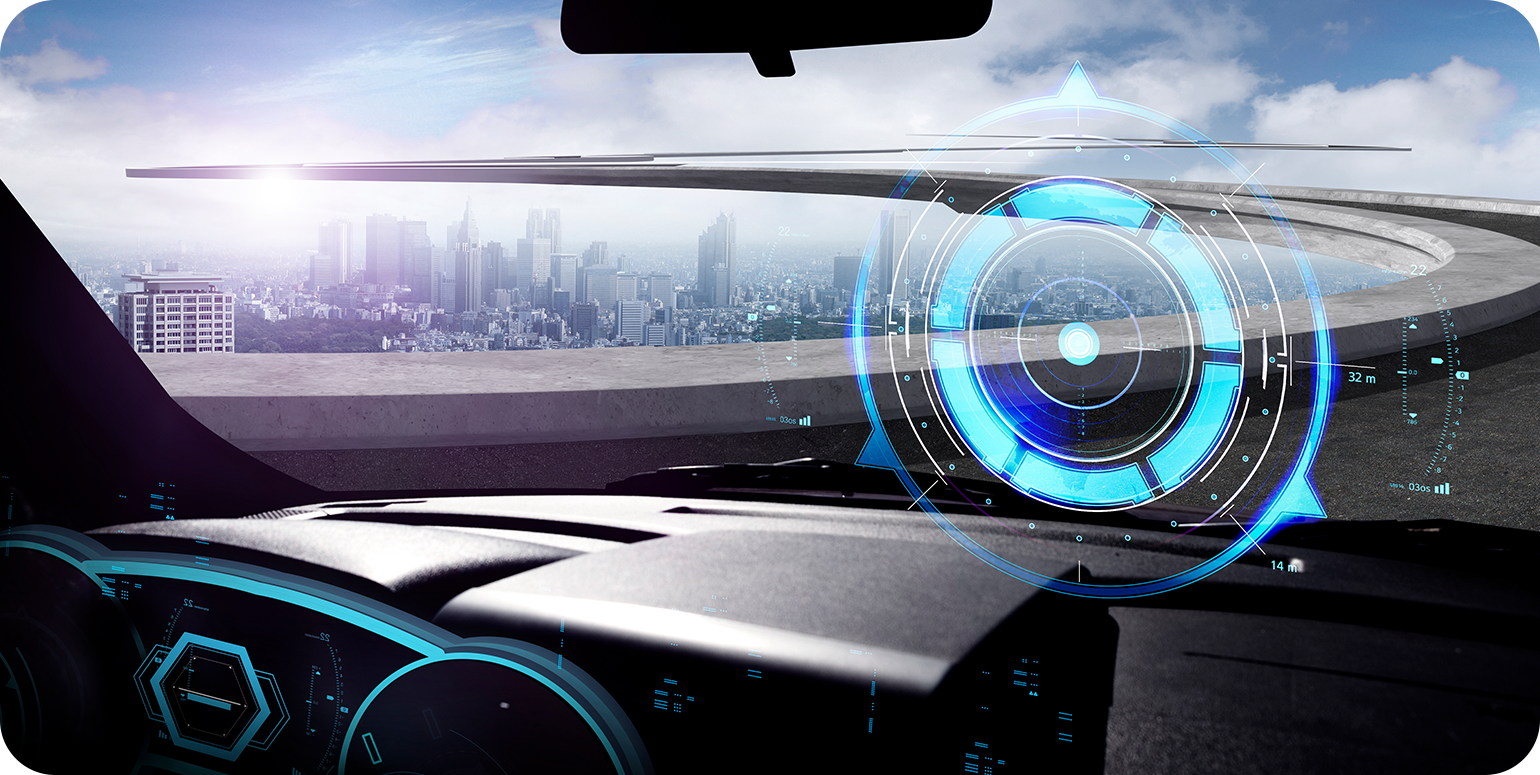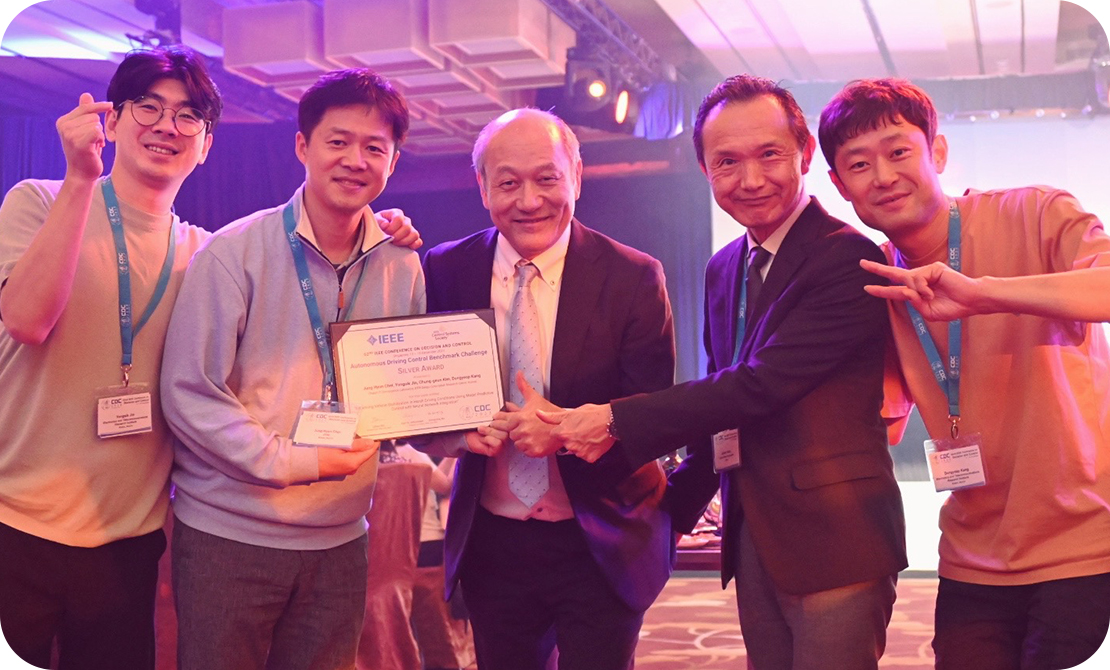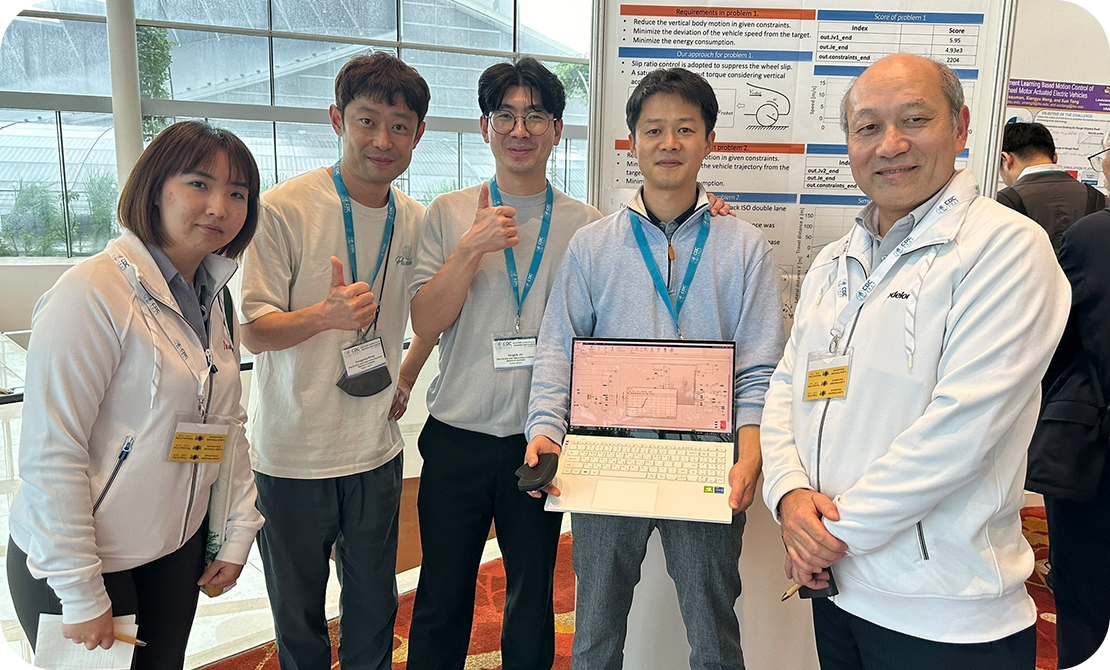ETRI Wins Silver in International Autonomous Driving Control Challenge
- Secured 2nd place in the Autonomous Control Challenge at the IEEE CDC Conference.
- Technology applicable to autonomous vehicles and mobile robots.

ETRI research team clinched second place in the autonomous driving control competition at a globally prestigious academic conference.
Electronics and Telecommunications Research Institute (ETRI) announced that it won the silver award at the 2023 IEEE Conference on Decision and Control (CDC)*, the most authoritative international conference in the field of control systems, held in Singapore at the end of last year. The award was received in the Autonomous Driving Control Benchmark Challenge.**
The competition presented a benchmark problem focusing on the body control and energy consumption optimization of an electric vehicle (EV) equipped with four in-wheel motors (IWM). Participants were required to design their controllers using the provided full 4-IWM electric vehicle simulator and the interface for controller design.
In the autonomous driving control competition, participants had to solve two challenges: acceleration and braking on rough, slippery roads and double lane change. The goal was to design a controller that manages the vehicle’s trajectory and desired motion while minimizing energy consumption. The challenging road conditions presented in the competition problems were not disclosed to the participants, and the final evaluation was conducted using various road undulation patterns provided by the organizers.
The ETRI research team presented their challenge results under the title “Enhancing Vehicle Stabilization in Harsh Driving Conditions Using Model Predictive Control with Neural Network Integration.”
To tackle the given tasks, the ETRI team applied a slip ratio controller that maintains a certain ratio of wheel slippage to road surface slippage, ensuring driving performance on slippery roads.
* IEEE Conference on Decision and Control(CDC)
** Autonomous Driving Control Benchmark Challenge

Furthermore, they adopted Model Predictive Control (MPC) technology for ISO-standard double lane change. Notably, the team applied the concept of cornering resistance to reduce the resistance occurring during steering, aiming to save driving energy.
Additionally, when performing double lane changes, the vehicle was designed to minimize driving energy and enhance stability by adjusting the steering angle and the vehicle’s yaw moment.
The driving control technology developed was successfully applied to the electric vehicle simulator used in the competition. The results obtained in this competition are planned to be implemented in a test vehicle currently being developed by ETRI, with ongoing efforts to further enhance the control technology by integrating it with neural network algorithms.
The test platform being developed by ETRI is based on an integrated drive module where the steering, driving, and suspension devices are combined into a single module, allowing for independent four-wheel driving and steering.
Dr. Jung Hyun Choi from the ETRI Robotics & Mobility Research Section stated, “We plan to further refine autonomous driving control technology for application in mobility and electric vehicle-related companies. Particularly, our future challenge involves implementing algorithms that combine model predictive control and artificial neural networks to operate in real-time on low-cost embedded systems.”
Woo-Jin Byun, vice president of Daegu-Gyeongbuk Research Center at ETRI, also commented, “We expect this technology to contribute to enhancing the technical capabilities of domestic companies by facilitating technology transfer in the field of ‘stable and energy-efficient autonomous mobility systems’ in the future.”

The ETRI Robotics & Mobility Research Section is conducting a variety of research in the field of robotics, in addition to autonomous driving research for vehicles, including environmental perception for mobile robots and human-following capabilities.
The competition saw participation from a total of 22 teams from around the world, including the United States, China, Japan, and Portugal. The teams that made it to the finals showcased their autonomous driving technologies during the poster session presentations at the academic conference.
The ETRI Daegu-Gyeongbuk Research Center’s Robotics & Mobility Research Section team, which took on the challenge in this competition, is composed of Dr. Jung Hyun Choi, Dr. Youngsik Jin, Dr. Dongyeop Kang, and intern researcher Chung-Geun Kim. The technology developed during this competition will be submitted to the International Journal of Unmanned Systems.
This research was conducted with the support of the Ministry of Trade, Industry, and Energy and the Korea Institute for Advancement of Technology (KIAT) under the project “Construction of a Smart Transport Logistics Autonomous Robot Platform.”
Jung Hyun Choi, Senior Researcher
Robotics & Mobility Research Section
(+82-53-670-8038, goodsangol@gmail.com)
 Previous
Previous